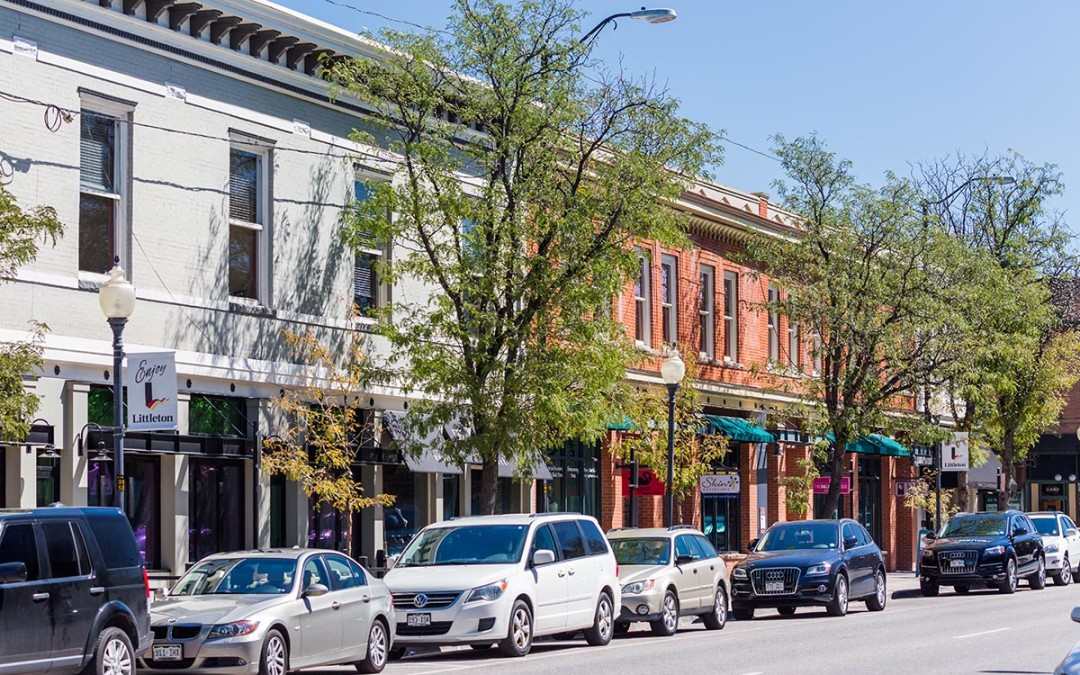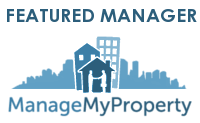
LIttleton, Property Management
The Denver Business Journal reported this week that Littleton, Colorado was ranked the second-best small city in the United States by WalletHub.
“Housing costs are affordable, home-ownership rates are high, cost-of-living is comfortable, education and health care are sound and quality of life ranks high.” Denver Business Journal
Littleton Colorado has a rich history, and a doomed factory
Littleton Colorado was incorporated in March 1890 with a population of 245. Franklin Gilmore was elected as mayor the following month and the city’s first church, St. Mary’s Catholic Church, was built on Prince Street in 1901. The county courthouse was completed in 1908 and the first Littleton library was opened in 1917, designed by JB Benedict.
In 1920, the first High School was built as was the Holmes Motor Company. In 1955, the precursor to Lockheed-Martin, the Glenn L. Martin Company was being developed and offered thousands of jobs to local residents. Through the 60’s and 70’s Littleton continued to grow and the Arapahoe Community College was formed, the Chatfield Dam began to be filled with water and the Littleton Historical Museum opened, which is home to Littleton’s first log school.
The Rough and Ready Flour Mill, built in 1867 provided some of the first jobs for the gold prospectors and families during the gold rush. It burned down three times before finally closing in 1959.
Some features of Littleton Colorado you may not know about
Littleton Colorado is 9 miles south of Denver and is known for its Western Welcome Week that has been celebrated since the late 1920’s and benefits the local community.
Hudson Gardens is a 30 acre non-profit botanical gardens which was started in 1941 by Colonel King C. and Evelyn Leigh Hudson. It became a public garden 1996 and features musical guests throughout the year and makes for a beautiful wedding and event venue.
Littleton World War II Memorial was dedicated on Veteran’s Day in 2000. It is located at 6000 S. Gallup St. Littleton, Colorado in the Ketring Park.
Littleton is an up and coming neighborhood that still has a lot of small town charm. With it’s convenience to C-470 and Santa Fe, getting to and from Denver and the surrounding areas makes it a perfect suburb that maintains its community roots.
Pick up the phone and call 720 989 1996 and lets talk about investing in a rental home in Littleton Colorado!

Property Management
Wondering what to do with your Denver house when you move out of the area?
The changing housing market is scary for some and seen as a cash cow for others. The options you have as a homeowner to leverage one of your largest assets is not a small feat. If you are moving out of town and have a home in Aurora, it is important to decide whether selling or renting it is the better solution for you.
What are your goals?
This is always the first question because it determines your next course of action. Are you wanting the investment of an income property that can send you ongoing income each month? Are you needing a lump sum of income or are you able to allow value to build in the property?
What’s my Denver home worth?
You will need to look at the sale value of your home. From that, you will see what the bottom line is from the sale. Subtract any costs associated with the sale such as Realtor fees and the mortgage and capital gains tax burden.
Contact us to get a property rental analysis to determine what rental rates your home could earn. Subtract any costs associated with the rental such as expected repairs and property manager fees. Also consider the additional tax benefits, and the effect on your wealth portfolio.
What is your strategy?
Once you understand and know your goals, you can make better decisions about how to achieve those goals. Knowing the value of your home- not based on emotion but instead on a market professional’s opinion, you can now see the potential return on your investment. From there, you will need a strategy to use the home as a vehicle to your goal.
If you use a home sale to reach your goal, you are looking at a single transaction and can start the home buying process again. If you use a home rental to reach your goal, you will be wanting to interview and work with a property manager.
As an out-of-area landlord, it is critical you have someone local to manage the property. Why?
- Someone needs to be reviewing the property at least once a month.
It is important to stay on top of tenant issues and changes. A vacant property can easily be taken over by squatters. A tenant may attempt to make unauthorized changes or begin bad habit such as allowing the grass and weeds to become overgrown. These can create legal issues and being on top of changes will help nip any problems while they are small.
- Someone needs to meet the potential tenants face to face.
Meeting the tenants, including doing a complete background check, reference check and income verification is critical. You want a high quality tenant and a legally binding lease to protect your investment. You also want to protect your property by having an agent you have designated be responsible for showing the property and following a code of ethics. Never give a lock box code to someone claiming to be an agent without proof.
- Someone needs to manage your home rental investment.
Property management can be a full time job, and we are guessing you aren’t putting your house for rent because you have nothing better to do with your time. In addition to saving you time, they will be watching your investments value. For example they will be asking, “Is the rent comparable to others in the area? Which vendors do we need right now vs. what can wait?”
If you have defined your goals, or aren’t sure where to start or what is possible with using your home as a rental, contact us. If you have defined that and are needing a home value analysis, call 720 989 1996 and contact us today.

Aurora, Denver, Property Management, Real Estate Investing
We get this question frequently: What can I expect to earn in Denver real estate income from my home rental property in the long run?
When people are considering investing in real estate, especially when considering if they should sell or rent their property, the main thing they need to be considering is cash flow. Below is the process we do, but simplified.
Selling the Denver property questions:
What is the mortgage payoff?
What will the home sell for?
What is the difference?
Renting the Denver Home property questions:
What is the appropriate amount of rent for a Colorado home?
The appropriate amount is not a number you want, but rather what the market can actually bear. A professional property manager should be able to give you this number.
What is the home mortgage amount due?
This number should include principal, interest, insurance and taxes.
What is the HOA cost? Will this number be included in the rent or not?
What other utility costs are there and will they be included in the rent?
Consider: Sewer, Water, Electricity, Gas, Snow Removal, Lawn Maintenance, Trash removal and any others that apply. This is an important number to know because they will be your responsibility if the unit isn’t occupied.
What do you need for a savings reserve? In this number, take into consideration:
- Maintenance fees. This number should be between 5-25% depending on the age of the house and its condition, including if remodeling has been done or not. Homes under 10 years old will be 5-15% and homes over 50 years of age will be closer to the 15-25% range.
- Transition savings. This number will be the expected money that will be banked for the time between tenants. A property manager can give you a good sense of your market and how much should be put aside.
- Property Management fees. These fees are worth their weight in gold. A good property management company will pay for itself in reduced legal issues, better tenants, better maintenance and more.
An example for Denver and Aurora rental home owners
Let’s take a hypothetical example. Of course, this is a simplified example for illustration only and is not advice. For professional support on your unique situation, contact us, a financial professional, and a tax professional.
John and Lisa Jones own a home and are moving out of state and are considering selling vs. renting out the property to a tenant.
Jones hypothetical selling the Colorado property questions:
- What is the mortgage payoff? $212,000
- What will the home sell for? $300,000
- What is the difference? 88,000
This is a one time chunk of money that they will pay capital gains on unless they purchase a new property. Talk to a CPA about how this works.
Jones hypothetical renting the property questions:
- What is the appropriate amount of rent? $2200/mo.
- What is the mortgage amount due? $1235/mo.
- What is the HOA cost? NONE
- What do you need for a savings reserve?
o Maintenance fees. 10%: $220/mo.
o Transition savings. 5%: $110/mo.
o Property Management fees. 12%: $264/mo.
Projected Income: $2200/mo.
Projected Expense: $1829/mo.
Difference: $371/mo.
In this scenario, the $88,000 would be returned in under 20 years, and the property will have grown in value. This also assumes the rent NEVER went up in 20 years. So at the end of thirty years the Jones would have:
A sold house that allowed them to get another house that has increased in value OR
A home they are living in that has increased in value AND a rental home that is free and clear of a mortgage payment. Their potential income then increases from $371/mo. to $1606/mo. and this can continue into retirement as a residual income.
There are additional tax benefits and consequences as a real estate investor that you should be aware of that apply in each scenario. They include what deductions are allowing whether you are living in the house or not.
This illustration is for educational purposes only and does not serve as legal or investment advice. Please contact a professional to discuss your specific situation as the numbers could be very different.
Call 720 989 1996 and let us show you how renting a home in Denver and Aurora Colorado pays!
[gravityform id=”4″ title=”true” description=”true”]

Property Management
This happened recently in outside of Fort Collins last month, and sadly, it is not the first time we have heard of rentals and vacant homes being taken hostage by unwanted visitors. There are some tremendous real estate scams out there. Here are a few we have heard of just in the Denver, CO area.
Tenant Bait, Switch and Extortion
In this story, the tenant posed as a real estate agent looking for a property for his clients. The tenant, ‘Garcia’, was not really and agent but was given access to the property, where he promptly began a marijuana growing operation, unbeknownst to the property owner who resides in California. The owner was told that the agent had an organic produce farmer looking for space. Marijuana is legal to grow in Colorado, but, it is still not considered produce. Seven Hispanic men took over the property without permission from the owner and then threatened a racial discrimination lawsuit against him if he didn’t comply with their demands, which included providing a lease to them.
The 40 acre land was converted into a marijuana grow center and Garcia, the mastermind of the extortion deposited over $8,000 into the property owners bank account to force the owner to sign a lease, even though Garcia wasn’t able to provide the required contract documents. The owner felt the issue was resolved and wasn’t willing to be bullied into a lease. He didn’t know that Garcia and his crew had already moved into the property with 245 pot plants. It wasn’t until the out-of-state owner was notified by another real estate agent interested in the property, nearly 3 weeks later, that there were unauthorized tenants, sometimes referred to as ‘squatters’, which is the next story.
Lesson for Landlords gained from this story:
Be certain the person claiming to be an agent, is one. Make sure, especially if you are an out-of-area owner, that you have a good property manager working on your behalf to schedule showings and manage leases.
It’s Mine Now
Wikipedia describes squatting as: “an action of occupying an abandoned or unoccupied area of land or a building, usually residential, that the squatter does not own, rent or otherwise have lawful permission to use.”
However, there are laws involving ‘adverse possession’ that could potentially allow a squatter to be awarded ownership of a property they have been occupying. In the state of Colorado, and the cities of Aurora and Denver, this law allows the property to be taken over after 18 years of occupancy or 7 years if they pay property taxes. This sounds like a very long time, and it is. The spirit of adverse possession was to reduce litigations over property usage and ownership. For example, if homeowner Jerry has been allowing neighbor Tom to use a portion of Jerry’s land for farming and then decides he wants to build a barn in that same area Tom can actually use adverse possession to claim he has openly without contest, used the space for 7 years. The court would likely favor Tom over Jerry under these laws.
The main point here is that the possession needs to be uninterrupted in the time period stipulated, and that the owner is aware of it. Homeowners, especially those from out of state, are being required to evict squatters from their properties, at their own expense.
Lesson for Landlords gained from this story:
Make sure that you are doing a regular inspection of your property to ensure there are no unwanted visitors. Consider using alarms, security and/or a property manager if you aren’t able to do an inspection yourself at least monthly.
Don’t be a victim of tenant scams. A good property management company will screen potential tenants, be there for showings to prevent fraudulent agents or squatters from taking possession of your home and costing you money.
Call 720 989 1996 and let us know your home rental situation.

Property Management
Whether you are a homeowner or a landlord or both, you have a tremendous asset in the property you own. And protecting those assets is essential to the goal of increasing value, rather than losing the time and money you have put into the investment of ownership. Just like in the stock market, where you learn a balance in when to buy and sell, protecting the asset that is your property, allows you to keep the most of your money.
- Be Honest
Lying didn’t work for Pinocchio and it won’t work for you.
Protecting your assets, as is everything in life, starts with honesty first. Attempting to hide assets is asking for problems. Full disclosure with your bookkeeper and trusted CPA is the first step in making sure you are covering yourself and fully taking advantage of legal deductions. Basically, without honesty, any advice given by professionals is moot. They simply can’t advise you well, putting you at risk, if you aren’t honest about your assets and goals.
It is also important when setting up insurance to practice full disclosure. If a claim against you were to arise, it is important to know that you are protected, and it can’t protect that which is unknown. Be transparent about your assets so you can have the proper coverage.
- CYA: Cover your assets
No insurance “wardrobe malfunctions”.
Proper coverage with Homeowner and Renter’s Insurance are both very valuable for property owners. Insurance coverage can assist in recovering loss after catastrophes, whether man or nature made. As a landlord, it is important that you are included as a covered insured on the renter’s policy. This is important, for example, if a tenant where to start a kitchen fire. Their assets would be protected, but also the home itself, which is your investment, is also protected.
Liability, business, personal and umbrella policies are all options to be considered when shopping for proper insurance coverage.
- Keep your hands out of the cookie jar
Don’t make business personal and visa versa
Business entities are meant to be for business, not be a second “checkbook” for personal use. Be sure to keep any assets designed for business, separate than personal ones. Protect your personal assets in a trust and use the expertise of your CPA to help with your business entity and the ways to properly administer the funds.
Using a property manager to work with your tenants and direct the relationship with the tenants is one way to keep it objective. If we were to invest in something we had an emotional tie to, we may not make the best decisions, especially the more difficult, complicated or expensive they are. For example, giving $1 to a kid with a lemonade stand because it brings back the nostalgia of your younger entrepreneurial days, is easy.
However, choosing to rent your home to Cousin Lou when he lost his job, but has another lined up and just “needs a break” to make it through, is much more difficult. Especially when you need to show up to Christmas and look his children in the eyes.
Be rich in mind and pocket
“A successful team is a group of many hands but of one mind” ~ Bill Bethel
As your assets grow, it is becomes even more important to build a good team of trusted professionals around you. A certified financial planner can help you with tax savings options such as IRA’s. Talk to them about your unique situation. A CPA is valuable for getting the right deductions and directing you in giving of gifts, whether to family, charity or more. A property manager can make sure your return on investment is hitting the goal you established by retaining quality tenants, eliminating bad ones, maximizing the rent value and saving you money with quality contractors.
At the end of the day, it comes to scalability. Can you continue to expand your assets? What is the best way to do that? Who do you need to surround yourself to support that?
Fill out the form below or call 720 989 1996 and let’s have a conversation about your property in Colorado and your assets.
Have a question? Ask us anything.
[gravityform id=”4″ title=”false” description=”false”]

Property Management
You did it. You decided to become a landlord by investing in an income property. The return on investment sounded perfect. And, mostly, it is. But there are a few things that aren’t. The washing machine broke down and flooded the carpet and you didn’t know who to call. The tenants didn’t pay and it’s three days past the due date. The tenants refused to spray the weeds or mow the lawn and the city gave you a violation notice. You received an 11:04 pm call with an unreasonable request.
You have now come to the conclusion that you may need some help. You don’t want to throw the baby out with the bathwater. You know investment properties work. You just didn’t know it would be so much work. Not all the time, just some of the time, being a landlord feels like more work than you want it to.
Legacy Properties-PM has created a series of blogs to help answer your landlord questions. We are also happy to take your call if the answer isn’t there. Just ask us. If you have the question, it is likely another landlord does too, and we’d like to address it publically. We want to be a resource in Aurora, Colorado and beyond. It’s one way that we are unique.
So, here is our ear, ask away…
Want to know the best way to find a quality vendor? A quality tenant?
Want to know what you can legally ask of a prospective tenant? Or what you can require of one that is currently living in the property?
Do you need answers on how to conduct an eviction or how to use a security deposit?
Are you needing to know what you can charge for rent?
Resources for background checks? Employment verification?
Wondering if it is okay to rent to family or friends?
Regardless of your questions, we would like to be a valuable source of information for you as a landlord. Questions about investment properties, income property, rental trends, quality vendors and more are welcome. Call us at 720 989 1996, or use the form below to ask my any question you have about being a landlord or property management. We look forward to building a relationship with you.
[gravityform id=”4″ title=”false” description=”false”]








